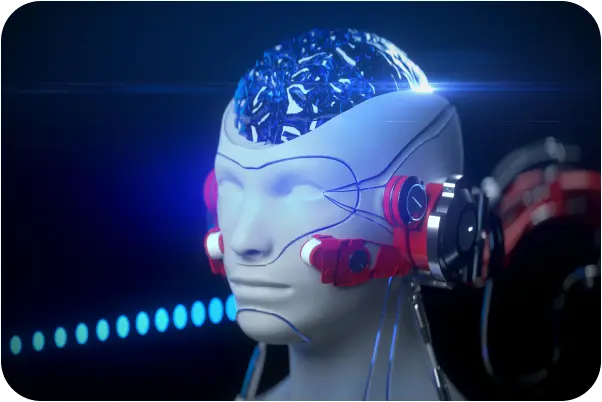Are pitch and intonation consistency important in voice cloning audio?
Voice Cloning
Audio Technology
Speech AI
Pitch and intonation are essential elements of speech that fundamentally shape how voices are perceived. In voice cloning, ensuring consistency in these elements is crucial for producing realistic and engaging audio outputs. Here, we explore why pitch and intonation consistency matters, how it functions in voice cloning, and the common challenges teams face in this domain.
Understanding Pitch and Intonation
- Pitch refers to the perceived frequency of a sound, determining its highness or lowness. Variations in pitch contribute significantly to emotional expression and meaning in speech. For instance, a rising pitch may indicate a question, while a falling pitch typically signals a statement.
- Intonation involves the patterns of pitch variation across phrases and sentences, lending expressiveness to speech. It conveys emotions, emphasizes points, and reveals the speaker’s attitude.
Why Consistency Matters
- Enhancing Naturalness: Consistent pitch and intonation are fundamental for creating human-like voice clones. Erratic pitch variations or inconsistent intonation can result in a disjointed and unnatural listening experience. Imagine a virtual assistant with unpredictable pitch changes. It may seem robotic, potentially eroding user trust and engagement.
- Emotional Expressiveness: A cloned voice with consistent pitch and intonation can effectively convey emotions, enhancing the listener's emotional connection. This is vital in applications like storytelling, where emotional engagement is key to user experience.
Mechanisms of Pitch and Intonation in Voice Cloning
Voice cloning models learn to replicate pitch and intonation from extensive datasets of recorded speech. These datasets capture variations across different speakers, accents, and emotional states.
- Training Data Pipeline: High-quality training data is essential. FutureBeeAI ensures that datasets are recorded in professional studios, capturing accurate pitch and intonation features. This allows models to generalize across various contexts, aiding in the creation of expressive and realistic voices.
- Data Annotation and Quality Assurance: Meticulous annotation of training data is crucial for capturing pitch and intonation nuances. FutureBeeAI's rigorous quality assurance processes ensure that datasets reflect diverse emotional states and speech patterns, enabling effective model training.
Naturalness vs. Clarity in Voice Cloning
Achieving the right balance between naturalness and clarity is a key challenge. Highly expressive voices enhance engagement but may sacrifice clarity. For instance, a customer support voice might prioritize clarity, while a gaming character voice could embrace more dynamic intonation.
- Speaker Diversity Considerations: Diverse pitch and intonation patterns are influenced by age, gender, and cultural background. FutureBeeAI's datasets encompass this diversity, enhancing the model's adaptability across different contexts, ensuring authenticity in cloned voices.
Avoiding Common Pitfalls in Voice Cloning
- Recognizing Emotional Context: Teams must understand that pitch and intonation are intertwined with emotional expression. Overlooking emotional context can lead to voices that fail to connect with users. Recognizing this, FutureBeeAI ensures that emotional depth is captured in its speech datasets.
- Comprehensive Testing and Feedback: Insufficient testing across scenarios is a common misstep. FutureBeeAI emphasizes thorough testing and diverse user feedback to refine cloned voices, ensuring they resonate well across applications.
Real-World Applications
Pitch and intonation consistency directly impact user experience in various applications. For instance, virtual assistants benefit from consistent pitch for reliability, while audiobooks need dynamic intonation for engagement. In therapeutic technologies, accurate intonation helps in emotional therapy, enhancing the effectiveness of the treatment.
FutureBeeAI: Your Trusted Partner in Voice Cloning
FutureBeeAI stands as a reliable partner, offering high-quality, diverse datasets crucial for voice cloning projects. Our custom datasets, recorded in professional environments, ensure that pitch and intonation are captured accurately, enabling the creation of expressive and realistic voices.
For AI projects requiring precise and diverse pitch and intonation data, FutureBeeAI provides scalable solutions with delivery timelines of 2-3 weeks, ensuring that your voice cloning endeavors are both successful and ethically grounded.
Smart FAQs
Q. How does FutureBeeAI ensure high-quality pitch and intonation data?
A. FutureBeeAI records speech data in professional studios, ensuring clarity and naturalness. Our rigorous quality assurance processes and diverse datasets capture accurate pitch and intonation, crucial for effective voice cloning.
Q. Why is pitch consistency important in virtual assistants?
A. Consistent pitch in virtual assistants enhances user trust and engagement by providing a natural, human-like interaction, making users more likely to rely on and interact with the technology.
What Else Do People Ask?
Related AI Articles
Browse Matching Datasets
Acquiring high-quality AI datasets has never been easier!!!
Get in touch with our AI data expert now!








